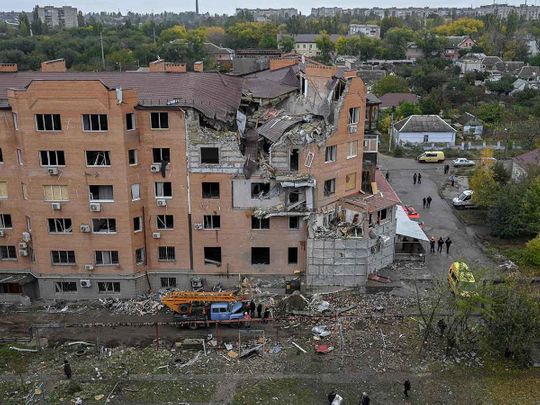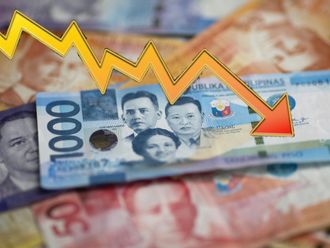
Despite the significant repercussions from the Russian-Ukrainian war for the global economy - and those of many individual countries - a solution to the conflict is still being sought.
An end to the conflict - when it happens - will open a new and decisive chapter in global relations and the balance of power, economically and geopolitically. It will either reinforce unipolar hegemony or shape a multipolar world, establishing new rules and foundations to replace those adopted after the Second World War (and have become obsolete).
Over the past few weeks, a dangerous escalation has unfolded, particularly following the latest NATO meeting, which was held in Washington last week. During the meeting, significant financial allocations were approved for Ukraine. Additionally, Ukraine was provided with the latest in fighter aircraft to target Russian territories, a move that NATO countries had previously avoided.
In response, Dmitry Medvedev, Deputy Chairman of the Russian Security Council, declared that Russia has the capability to stop both NATO and Ukraine simultaneously.
Although there has been a media war between the two parties, as is usual in all conflicts, this can be interpreted in two possibilities:
- Either the West cannot tolerate a defeat in Ukraine, whose signs have begun to emerge, potentially reshaping the global landscape.
- Or that these fiery statements precede a period of negotiations to strengthen each party's position to come out with a face-saving outcome. The latter seems more realistic, as confrontation means the end of the world.
The second possibility is closer to reality for several reasons. The sanctions imposed on Russia have not had severe impacts on the economy, which managed to adapt quickly, bolstered by strong relations with the likes of China and India, as well as its alliance with BRICS countries. According to data from the International Energy Agency, the value of Russian oil exports increased by 23 per cent in June compared to the same month last year. Also, Russian gas exports to EU countries rose by 25 per cent. This means that the Russian economy’s key sector continues to operate normally, despite transactions being conducted in rouble, which can be exchanged for other global currencies at the Central Bank of Russia.
Sanctions have not derailed Russia's economy
Since the enforcement of sanctions, which NATO countries have heavily relied upon to destabilize the Russian economy and compel Russia to end war or face economic collapse, have proven ineffective, the only alternative is to end the war through other means.
This could be reached through negotiations where Ukraine transitions into a neutral country akin to Switzerland or Austria, maintaining normal relations with all its neighbours, including Russia.
Since the victor is the one who determines the terms for ending the war, difficult concessions will be necessary, especially since this will come with economic and geopolitical consequences that will be built upon in the arrangements for a post-Ukraine-Russia war. This will pave the way for an inevitable new multipolar world after reshaping the existing balance of power.
Economically, this new world will be different from the end of Cold War 30 years ago, where there will be no hegemony for one party alone that can dictate its terms and regulations to the rest of the world. Rather, there will be a more equitable and multilateral system that offers huge development opportunities for all nations, including emerging economies.
A fairer pricing for all
The developing nations will be able to obtain fair returns for the sales of their natural resources, which currently do not reflect their true values. It is essential to acknowledge that each country's ability to benefit from this transformation depends on its leadership's commitment to sound and professional economic management, free from corruption and mismanagement.
While the shift towards a multipolar world was initially referred to at the outset of the Ukraine-Russia war, the characteristics of this new world have become clearer.
This is underscored by the expansion of the BRICS group and the inclusion of significant countries, along with the steadfast positions taken by China and India regarding the war and their support for this transformation. It is further bolstered by the support of most countries affected by the current order.













